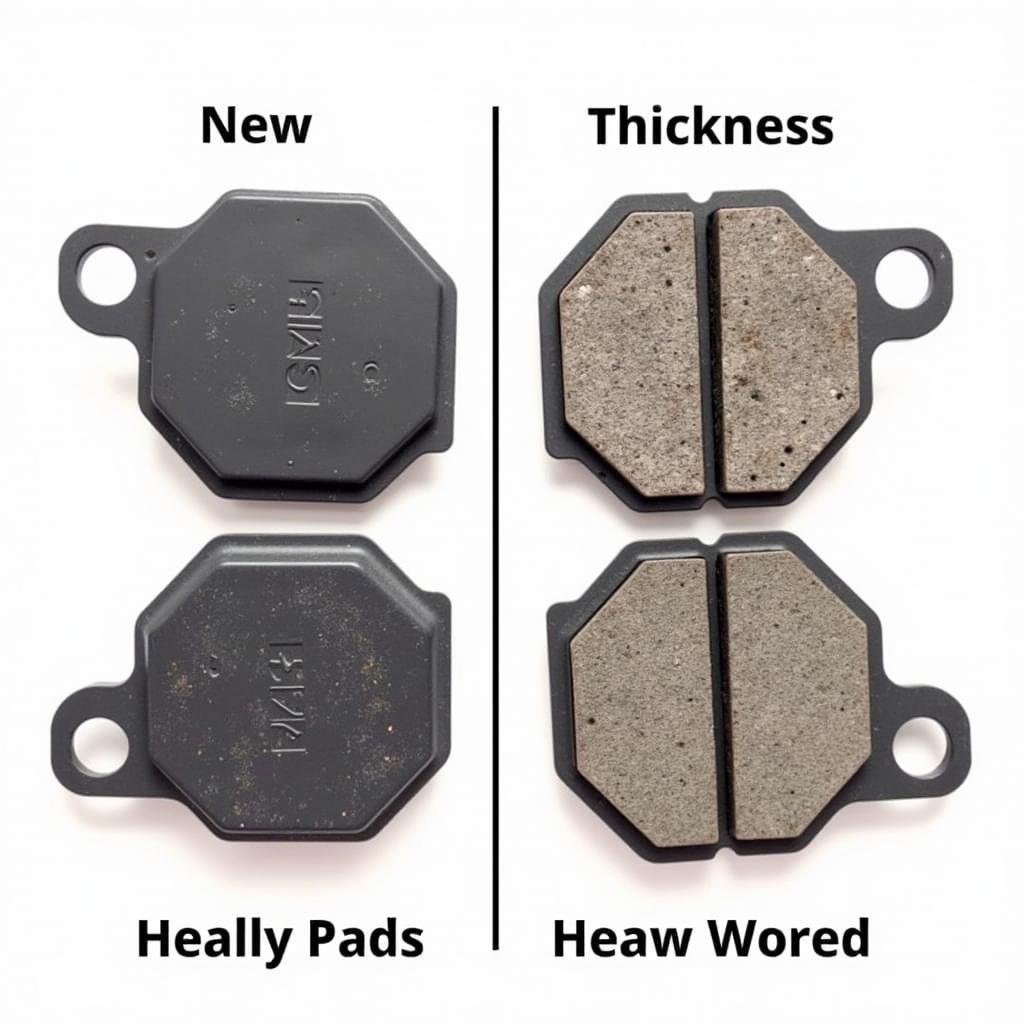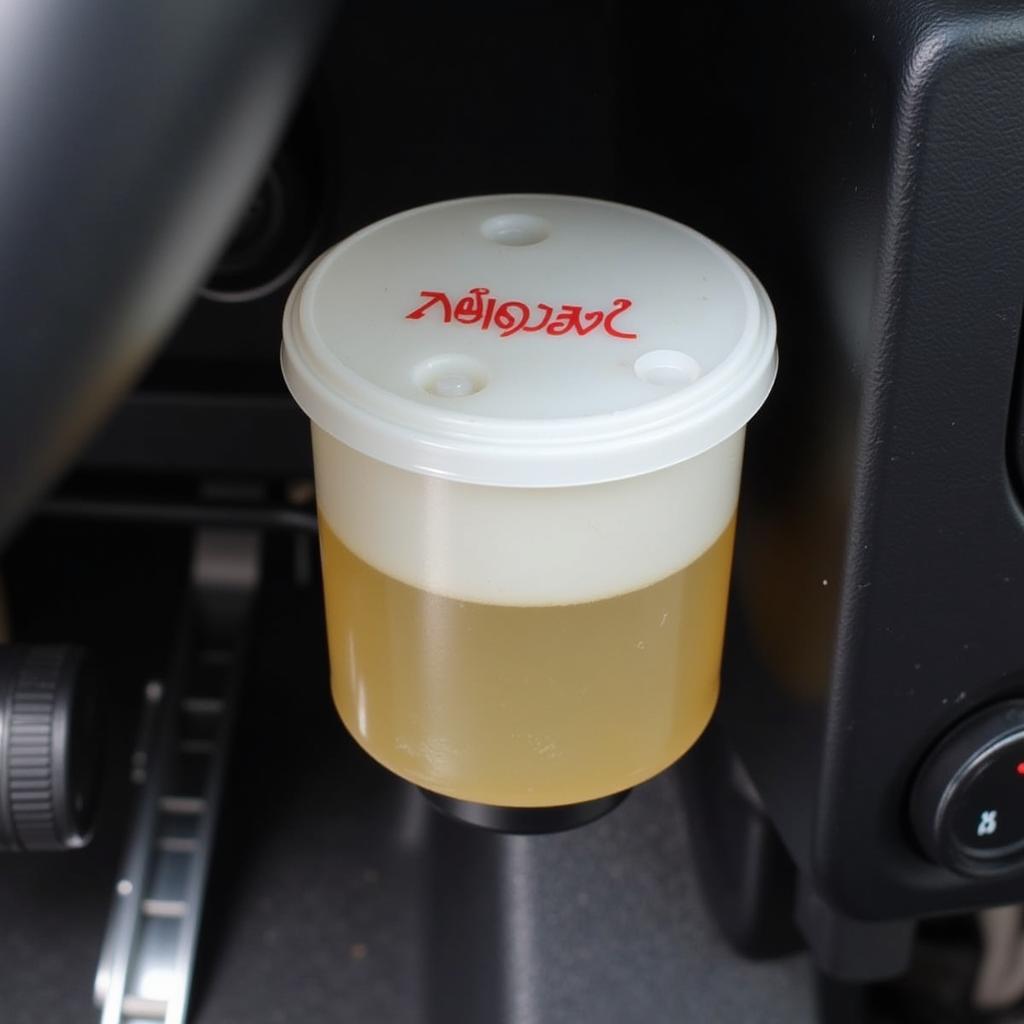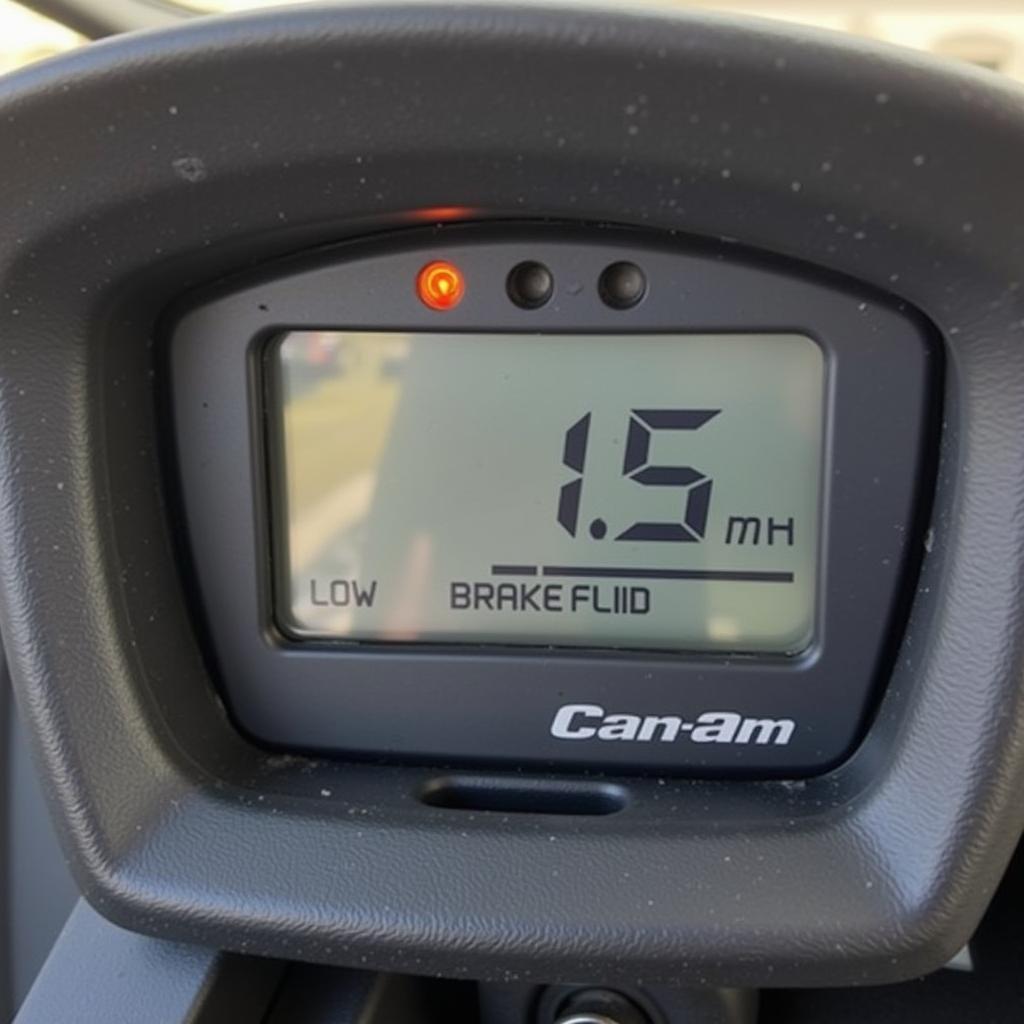The dreaded brake system warning light on your Mini Cooper dashboard can be a heart-stopping moment for any driver. This often unexpected illumination can signal a range of issues from minor to serious, leaving you wondering about the cause and the best course of action. This comprehensive guide will explore the common reasons behind a brake warning light in a Mini Cooper and provide you with the information you need to address this potentially critical situation.
Understanding Your Mini Cooper’s Braking System
Before diving into the specifics of the brake warning light, it’s crucial to understand the basics of your Mini’s braking system. Modern Mini Coopers utilize a sophisticated system comprised of several components working in harmony to ensure safe and efficient stopping power. These components generally include:
- Hydraulic System: This system uses brake fluid to transmit force from the brake pedal to the wheels. It consists of the master cylinder, brake lines, and calipers.
- Disc Brakes: Most Mini Coopers use disc brakes on all four wheels. Disc brakes work through the clamping force of calipers on brake pads, which in turn press against the brake rotors to slow and stop the vehicle.
- Electronic Brake-force Distribution (EBD): This system optimizes braking force distribution between the front and rear wheels, improving stability and preventing wheel lockup during braking.
- Anti-lock Braking System (ABS): The ABS prevents the wheels from locking up during hard braking, allowing the driver to maintain steering control.
- Electronic Stability Control (ESC): Working in conjunction with ABS, ESC helps maintain vehicle stability and prevent skidding during cornering or on slippery surfaces.
Common Causes of a Brake System Warning Light
The brake system warning light on your Mini Cooper’s dashboard can illuminate for various reasons. Let’s delve into some of the most prevalent causes:
1. Low Brake Fluid Level
One of the most common and easily remedied culprits for the brake warning light is a low brake fluid level. Brake fluid is the lifeblood of your car’s hydraulic braking system. As brake pads wear down over time, the brake fluid level in the reservoir naturally drops.
What to do: Check your brake fluid level. If it’s low, it’s important to top it off and inspect the system for any leaks.
Expert Insight: “Never ignore a low brake fluid warning. It often signals a leak in the system, which could lead to brake failure if not addressed promptly,” says Master Technician, James O’Connell.
2. Worn Brake Pads
Brake pads are designed to wear down over time. As you use your brakes, friction between the pads and rotors gradually wears them down. When the pads reach a certain thickness, a sensor will trigger the brake warning light on your dashboard.
What to do: If your brake pads are worn, it’s essential to have them replaced by a qualified mechanic as soon as possible.
 Worn Brake Pads on Mini Cooper
Worn Brake Pads on Mini Cooper
3. Brake System Malfunction
A malfunction within the brake system itself, such as a faulty ABS sensor, malfunctioning master cylinder, or a leak in the brake lines, can also trigger the warning light.
What to do: Diagnosing brake system malfunctions requires specialized knowledge and tools. If you suspect an issue beyond low brake fluid or worn pads, it’s crucial to take your Mini Cooper to a qualified mechanic or dealership for diagnosis and repair.
4. Parking Brake Engaged
It might seem obvious, but sometimes the simplest explanation is the most likely one. If you’ve accidentally left your parking brake partially engaged, it can cause the brake warning light to illuminate.
What to do: Check your parking brake. If it’s engaged, disengage it completely and see if the warning light turns off.
5. Electrical Issue
While less common, a faulty brake light switch, a blown fuse, or wiring problems can also cause the brake system warning light to come on.
What to do: Like brake system malfunctions, electrical issues often require professional diagnosis and repair.
What to Do When the Brake Warning Light Comes On
If your Mini Cooper’s brake system warning light illuminates, it’s crucial to take immediate action. Here’s a step-by-step guide:
- Safely pull over: As soon as it is safe to do so, pull over to the side of the road or a safe location.
- Check your parking brake: Make sure the parking brake is fully disengaged.
- Check your brake fluid level: If you feel comfortable doing so, carefully check the brake fluid level in the reservoir. If it’s low, add the appropriate brake fluid (consult your owner’s manual for the correct type). However, remember that simply adding brake fluid won’t fix the underlying issue if a leak exists.
- Assess the situation: If the brake warning light stays on after checking your parking brake and topping up your brake fluid, or if you notice any unusual sounds or sensations when braking (such as grinding, pulling, or a spongy brake pedal), it’s highly advisable to have your vehicle towed to a qualified mechanic or dealership for professional inspection and repair.
Don’t Ignore the Warning!
Ignoring a brake system warning light is never a risk worth taking. Continuing to drive with a potential brake problem could lead to costly repairs or, more importantly, compromise your safety and the safety of others on the road.
FAQs about Mini Cooper Brake Warning Lights
Q: Can I drive my Mini Cooper with the brake warning light on?
A: While you might be able to drive a short distance, it’s not recommended. Driving with a potential brake issue can be dangerous and could worsen the problem.
Q: How much does it cost to fix a brake warning light on a Mini Cooper?
A: The cost of repair depends on the underlying cause. Simple fixes like replacing brake pads are less expensive than addressing a brake fluid leak or a faulty ABS sensor.
Q: How often should I get my Mini Cooper’s brakes checked?
A: It’s a good rule of thumb to have your brakes inspected annually or every 10,000-12,000 miles.
Q: Can I check and add brake fluid to my Mini Cooper myself?
A: Yes, checking and adding brake fluid is a relatively simple task that many car owners can do themselves. Refer to your owner’s manual for instructions specific to your model.
Q: What type of brake fluid does my Mini Cooper use?
A: Consult your owner’s manual for the recommended brake fluid type. Using the incorrect type of brake fluid can damage your braking system.
Remember, your Mini Cooper’s brakes are critical for your safety. If you experience any problems with your brakes or have concerns, it’s best to seek professional assistance. Regular maintenance and timely repairs will help keep your Mini Cooper running smoothly and safely for miles to come.


